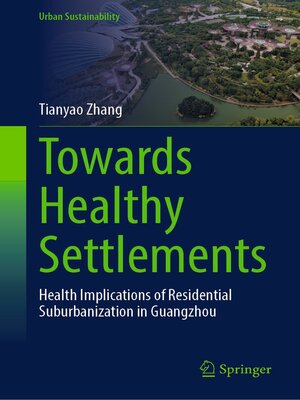Towards Healthy Settlements
ebook ∣ Health Implications of Residential Suburbanization in Guangzhou · Urban Sustainability
By Tianyao Zhang

Sign up to save your library
With an OverDrive account, you can save your favorite libraries for at-a-glance information about availability. Find out more about OverDrive accounts.
Find this title in Libby, the library reading app by OverDrive.



Search for a digital library with this title
Title found at these libraries:
| Loading... |
This book aims to formulate recommendations for achieving a healthy neighborhood living environment for the middle-income people in China's suburbs. In China, the expeditious urbanization triggers the prosperous commodity housing development, which further grows with the spatial restructuring and socioeconomic transition. Residential suburbanization is generated, accompanied with the emergence of new-middle class and the change of lifestyle. However, the health effects of suburbanization in China are overlooked. This book investigates the health performance of suburban residents and the effects of suburban living on residents' health. This book also examines the resident-environment transaction modes to unfold the underlying mechanism of suburban living affecting residents' health. Suburban residents had to passively adapt to their residential environment, which is the obstacle for achieving a health-promoting environment. The institutional dynamics determining the health performance of suburban living environment were addressed with the roles of governments, developers, planners, housing managers, residents' committee, and ordinary residents in commodity housing development. The book found no institutional support for the creation of health-promoting environments, especially with default of governments and excessive dependence on developers for public service facilities and the absence of civil society. Thus, the book proposes that institutional innovations are necessary in term of embedding the health dimension in all sectors of the society, enlisting collaboration between public and private sectors, and between health and non-health sectors, and thus cultivating the optimization of residents-environment transactions to create health-promoting environments.






